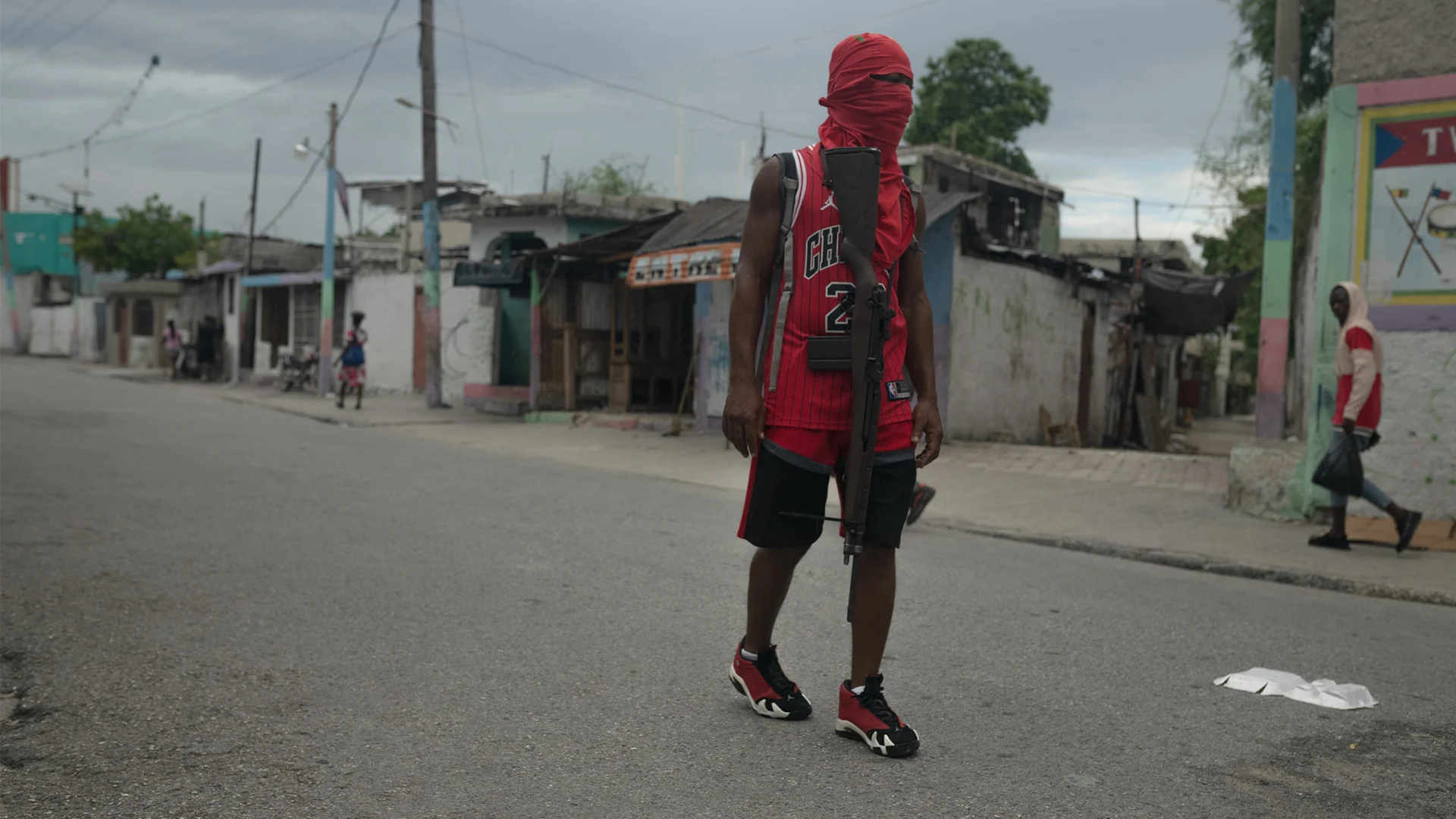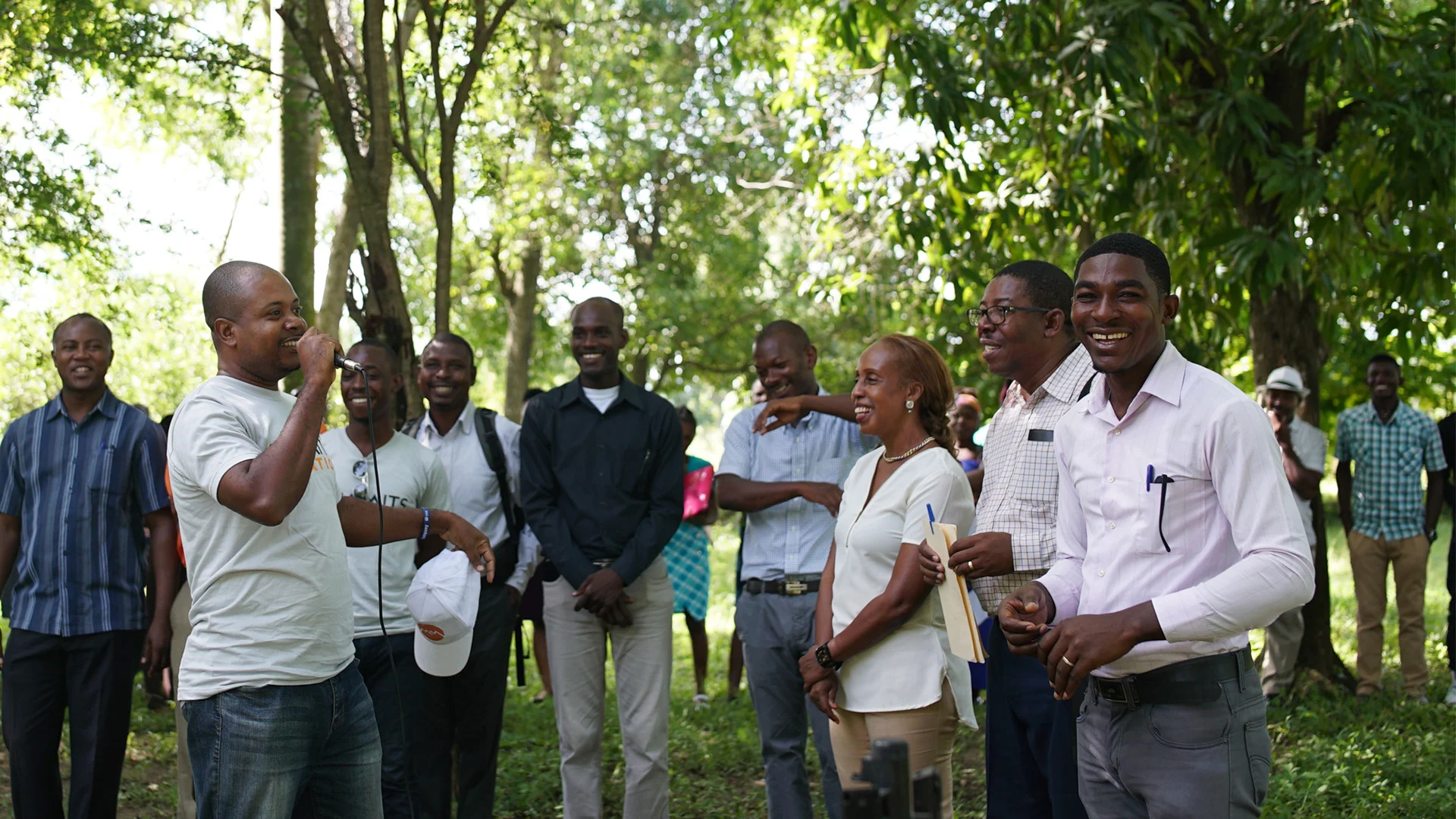
As gang violence rocks Haiti, essential services organisations and institutions have become innovative, especially hospitals. To keep operating, the Partners In Health (PIH) University Hospital of Mirebalais in central Haiti, has been providing its staff with housing and food and hired police officers for security.
The objective, Dr Christophe Millien, said, was “to calm down the anxiety of the personnel” to make sure they would come back to work.
Millien, the Haitian chief medical officer of the Partners In Health (PIH) University Hospital of Mirebalais in central Haiti, is not alone in feeling this sense of duty, and in carrying on despite the risks.
Rosy Auguste Ducena, programme manager for the National Human Rights Defence Network (RNDDH), released a report on August 18, 2023 about gang attacks in the capital’s Carrefour Feuilles area. Two hours later, her office gates were shot up. Attacks in the area ended up killing 104 people and leading 5,000 to flee.
Auguste Ducena works with victims of human rights violations, women who’ve been raped by gangs, and displaced people. She helps record and file their cases to the Haitian judicial system.
“[Staying] is the biggest commitment I can make, so that my children can live in their country without problems,” she told The New Humanitarian.
Despite the increasing threats, Auguste Ducena still goes to her office. In September 2022, she testified as a civil society leader before the US Senate. She asked for support for Haitian-led solutions, for more measures to fight corruption and to stop arms smuggling from the United States, and for help vetting the police, among other things.
For Auguste Ducena, the idea of restoring security just to prop up the current elite is a recipe for more of the same. “Today, our biggest fear is that this mission will be used by those governing the country to make people believe, especially the international community, that there is enough security in Haiti to go straight to elections and then go back to another political crisis,” she said.
Velina Charlier also testified before that US Senate hearing. She is a human rights activist and a member of Nou Pap Dòmi, a Haitian civil society movement advocating for social justice, anti-corruption, and accountable governance.
Despite threats to her life, Charlier said Haiti is her home. “I made peace with the idea of dying a long time ago,” she says. “I don’t have the luxury of being scared. I just hope.”
She said she is against the deployment of an international support force because it won’t address what’s at the core of Haiti’́s insecurity: impunity.
“There is no nation in the entire world that has built its security from outsourcing the force. The security of the nation is the responsibility of the nation,” she said.
To address impunity, clean politicians, the business sector, civil society, and the diaspora – who contribute more than 23 per cent of the country’s GDP in remittances – must work together, participate politically, and educate a new generation of politicians, she said, adding: “You cannot build a nation if you don’t have citizens that understand their duties but also their rights.”
Fighting for their right to live peacefully is what Jonel Joseph and Jean-Denis Petitpha have been doing since the night of April 24, 2023, when around 3am they heard gunfire ring through their southern Port-au-Prince neighbourhood of Canapé-Vert.
They lead a neighbourhood association called Canapé-Vert Revèyè (Awaken Canapé-Vert), which was set up in 2000 to raise money to send children back to school. Since that night, it also works to keep the community safe from gangs.
“We were hearing a lot of gunfire… We were calling each other, banging iron so that everyone would wake up,” said Joseph. “It was a chain reaction where everybody acted to protect their neighbourhood.”
When the bullets ran out at around 6am that day, a group of residents turned violent. They lynched 14 gang suspects, taking them from the police. These events sparked an anti-gang vigilante movement called Bwa Kale, which has killed more than 300 alleged gang members, according to the UN.
“We don’t have a government. It’s absent. So every person has to take care of themselves, their families, their community and environment…”
Canapé-Vert Revèyè – which defines itself as a peaceful organisation – tries to defend the neighbourhood in other ways. Every night, its members make barricades out of cars, rocks and trees to prevent gangs from entering. The next morning, they remove them so that women going to market and others on their way to work can pass.
“Our mission is to combat poverty and fight for peace and security in order to have a better Haiti,” said Petitpha, who owns a hotel in the area and receives displaced people free of charge.
“We don’t have a government. It’s absent,” added Joseph. “So every person has to take care of themselves, their families, their community and environment… Our ancestors used vodou to free themselves. We are able to defend ourselves with other things than guns.”
In the southeastern beach town of Jacmel, Rachelle Salnave is also part of a close-knit community. A Haitian-American filmmaker born and raised in Harlem, her parents left during the 1957-1986 Duvalier dictatorship, which preceded Aristide.
Salnave moved to Haiti in March 2023 after getting her dual citizenship. She was asked to take over as executive director of the Artists Institute, a film production and audio-music engineering school supported by celebrities such as Susan Sarandon and Francis Ford Coppola.
The school has been closed for the past year, but Salnave’s hope is for it to reopen as soon as possible.
“You don’t leave when things are bad,” she said.
Salnave’s biggest challenge has been to find partnerships willing to fund technical training and equipment. Once boasting a staff of 60, she now works with 13 people only. Out of the 44 students who were there originally, only 32 are still around.
She references the motto on the Haitian flag – L’union fait la force (unity makes strength) – to explain what drives her: “Any time you see that [unity] in Haitian history, you see some advancement.”
- The New Humanitarian report











